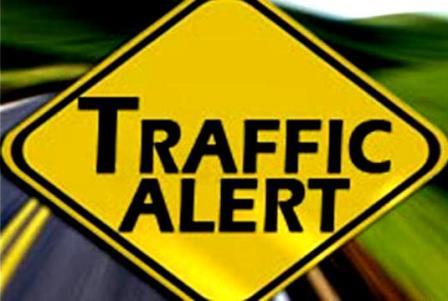My children often tell me that I have two personalities: “mom mom” and “airport mom.” The latter is not a compliment: she is rude and impatient, tries to maneuver through lines, views weather delays as a personal slight, and uses words like “outrage” or “injustice” at missed connections.
Simply put, airport travel can sometimes be a pain. So when the Transportation Security Administration (TSA), an agency of the Department of Homeland Security, admitted last week to what was obvious to any traveler — there were extreme delays in airport security lines due to a combination of factors — airport moms (and dads) were understandably unhappy. It seemed that the most obvious solution was that the TSA had to be fired. Calls for privatizing airport security were heard throughout the airline industry.
Take a deep breath. It’s a horrible, destructive idea.
Let’s begin with the obvious. The blame for the airport delays isn’t solely on the TSA. Sure, we can all complain about some security officers standing in a corner joking around while we take our shoes off. But the challenges for airport delays have been building up for months and represent a perfect storm of inconvenience.
The blame can be shared, so the solution has to be as well. Since airlines are charging for checked luggage, more people are taking bags through security lines, slowing the process. As a result of lower oil prices, airline travel is cheaper. A stronger economy has led to increased air travel. Congress has, until recently, failed to support budget requests for more TSA agents. The public has been slow to apply for TSA Pre-check programs that allow easier passage through security lines and that decrease the time it takes to flow through the checkpoint. TSA employees have certain union rights that make shifting work hours to align with increased travel times subject to negotiation. And the job itself — not easy, highly demanding — is difficult so there is major attrition in the workforce.
By all metrics, the TSA has responded in a reasoned fashion to a problem not entirely of its own making. Like any other security apparatus, the challenge for planners is that it stops the public from getting from point A to point B. An effective security plan optimizes the flow of people (and their luggage) without compromising the expectation of safety we demand given the vulnerability of airline travel.
These immediate changes to TSA planning — requesting and receiving the budget from Congress to hire 1,600 more agents; increasing overtime opportunities for TSA employees; reprogramming DHS funds to support TSA hiring; giving airport officials an easier capacity to shift employee placements around so that security personnel are not being utilized for mundane tasks like announcements or putting baggage bins away; and better aligning security resources with the most popular airline flights — are likely to reduce wait times. At the very least, they show that an agency — so maligned so often — is taking the complaints seriously.
The notion of privatizing airline security — in the middle of a security challenge that is being addressed by the government — is a solution in search of a problem. The issue isn’t whether private sector employees could get the job done; maybe they could. But shifting mid-stream is surely going to impact airline travel in ways we can’t imagine (for example, who trains these employees and who certifies that they are qualified?) and only solves one of a multitude of challenges that has led to the increased wait time. It also will undermine the important public union rights that are an integral part of why people become first responders.
Should airline security look different than it does now? Probably, over time. But changing in the middle of a crisis is a mistake. Beyond that, new technologies are making the burdens of passenger and luggage detection easier and less prone to false positives.
An aggressive publicity campaign to get more citizens qualified for TSA pre-clearance will also relieve a significant amount of the burden. Indeed, TSA Pre-check applications have increased by nearly four times the level of just a year ago. And it’s worth criticizing the airline industry for its policy of charging for checked bags, even though the industry’s clout would probably block any legislation to stop the practice.
Security planning is not some static enterprise; it must be nimble and able to pivot given new threats and increased burdens. The solution is not to throw the entire apparatus out in hopes that some alternative looks better. Progress is going to be made. A multi-faceted issue — with no single culprit and no quick fix — requires complex and layered solutions. This is true in all homeland security efforts.
It will be a long time before “airport mom” finds traveling with three kids anything but a hassle. But that was true well before our summer of delayed wait times. Security is often an inconvenience. Government’s responsibility is simply to make it less so.



